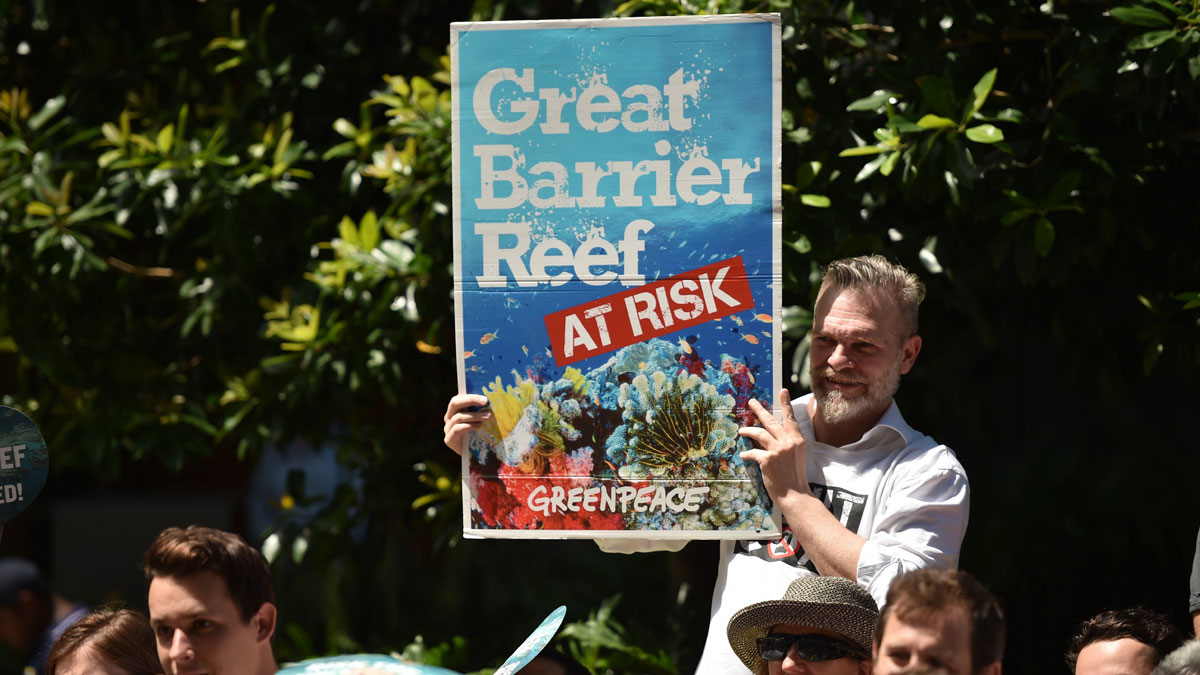Could fossil fuel divestment help beat climate change?
Norway's move out of coal is a powerful symbol of the growing strength of movement

A free daily email with the biggest news stories of the day – and the best features from TheWeek.com
You are now subscribed
Your newsletter sign-up was successful
The campaign calling for the widespread withdrawal of capital from major fossil fuel polluters secured a significant coup this summer, as Norway's parliament ordered its sovereign wealth fund to divest from companies whose main business is burning coal.
There is more than a hint of irony in the move, the New York Times says. The fund, which at $890bn is the world's largest sovereign investment vehicle, was created from money Norway earned by being a global oil exporter. A large slice of the country's economy continues to rely on the production and export of oil and gas.
But others say the move, like the fossil fuel 'divestment' movement in general, is powerfully symbolic. The Guardian notes that divestment movements have been targeted previously at the tobacco and arms industries, and perhaps most notably played a role in shaping opinion during the fight against apartheid in South Africa.
The Week
Escape your echo chamber. Get the facts behind the news, plus analysis from multiple perspectives.

Sign up for The Week's Free Newsletters
From our morning news briefing to a weekly Good News Newsletter, get the best of The Week delivered directly to your inbox.
From our morning news briefing to a weekly Good News Newsletter, get the best of The Week delivered directly to your inbox.
The paper says the purpose of the campaign is to inflict reputational damage on firms and institutions that are involved in burning fossil fuels, as well as those investors that continue to lend indirect support by refusing to pull funding. Securing the backing of a major fossil fuel exporter, even in a limited fashion, will be seen as a significant victory. There has been similar celebration at a vote by the council in Australia's former coal powerhouse Newcastle to withdraw funds from banks backing fossil fuel projects.
So far the campaign has seen pressure to divest brought to bear on university endowment funds, religious bodies and charities. It's a moral imperative, campaigners say, that such institutions should be leading the way when it comes to climate change. But the campaign asks all investors, including individuals, to consider cleaning up their portfolios.
There have been some high profile successes. In the wake of criticism of the ethics of its investments, the Church of England recently voted to divest from companies involved in extracting oil from tar sands or thermal coal. The Pope has also hinted the Vatican may seek to divest its fossil fuel holdings.
That such groups are not jumping on board as enthusiastically as some might have anticipated, however, reflects a key concern for charitable investments that must first and foremost manage risk. This is not best achieved, some say, by selling out of the likes of major oil exporters, which have historically been among the most defensive, dividend-yielding stocks.
A free daily email with the biggest news stories of the day – and the best features from TheWeek.com
Of course, this argument fails to take into account the degree to which the model of fossil fuel exploration companies in particular is being challenged by a shift towards renewable energy and away from polluters across the world. It breaks down completely if world leaders as expected finally agree to binding targets to reduce fossil fuel emissions dramatically in December. Such action will require huge investment in alternative energies as well as legislation to restrict the activities on which these companies thrive.
As any long-term investor will tell you, this adds up to a strong case to divest.
For more information on investments, please click here